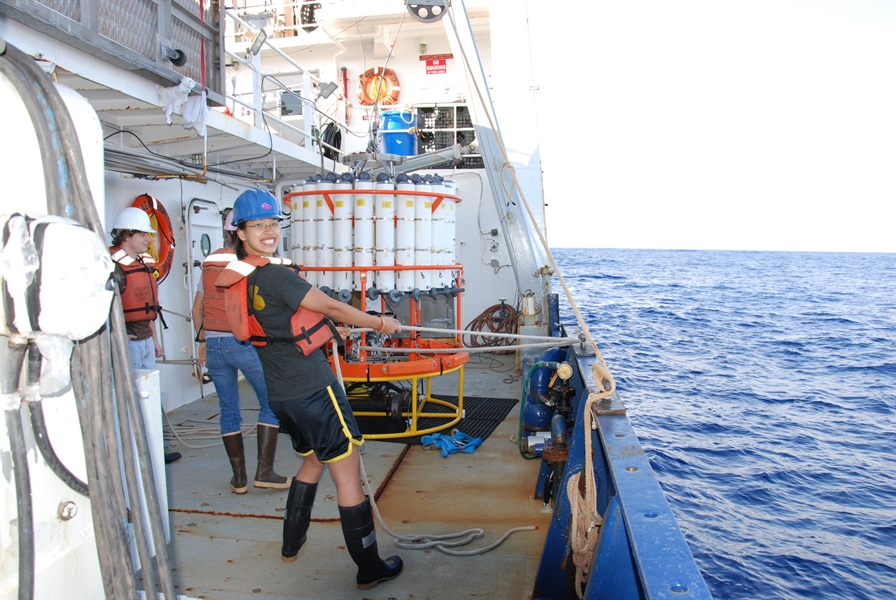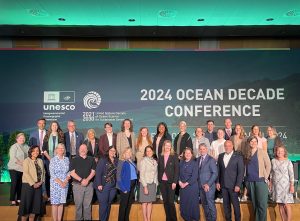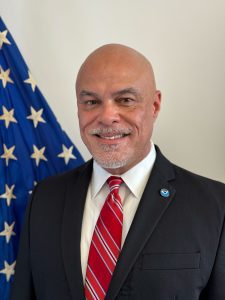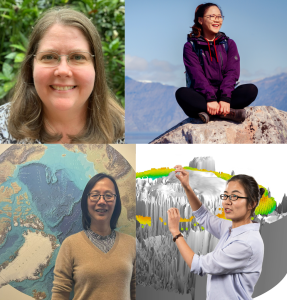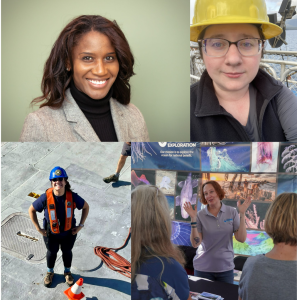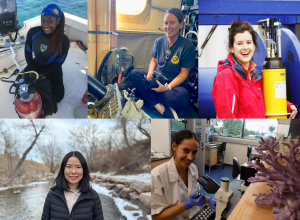Dr. Sophie Chu is a postdoctoral research associate working on testing the performance of carbon sensors at NOAA’s Pacific Marine Environmental Laboratory (PMEL).
What drew you to your current career or field?
I became interested in oceanography after reading about the North Pacific garbage patch in the New York Times. I started looking at graduate schools for oceanography and discovered the field of ocean acidification.
What projects or research are you working on now?
I have a few projects that I’m working on to evaluate prototype and commercially available carbon sensors. One involves the deployment of a pCO2 [partial pressure of carbon dioxide] optode sensor off the coast of Washington on a “profiling crawler” or PRAWLER, developed at NOAA PMEL. I compared the optode performance to a regional algorithm to assess its overall uncertainty.
What do you enjoy most about your work?
I enjoy working on sensor technology because autonomous sensors can enable scientists to get better spatial and temporal coverage than discrete bottle samples. Better data coverage can increase our understanding of the rate of ocean acidification across space and time.
What was the best advice ever given to you that helped you become successful?
Don’t be afraid to ask for what you want.
What’s been your favorite (or proudest) moment in your career so far?
Finishing my thesis defense.
What do you hope to accomplish in the future? What do you hope the future for women in science looks like?
I hope there will be more women in senior positions and in leadership roles.
Looking back, what would you tell yourself when you were 12 years old? Or what advice would you give to a woman just starting out in her career?
I would tell myself to be more confident and not underestimate what I can do.
